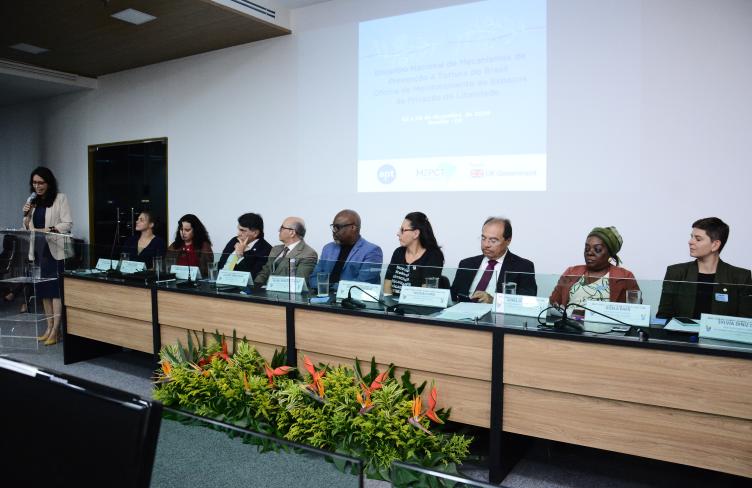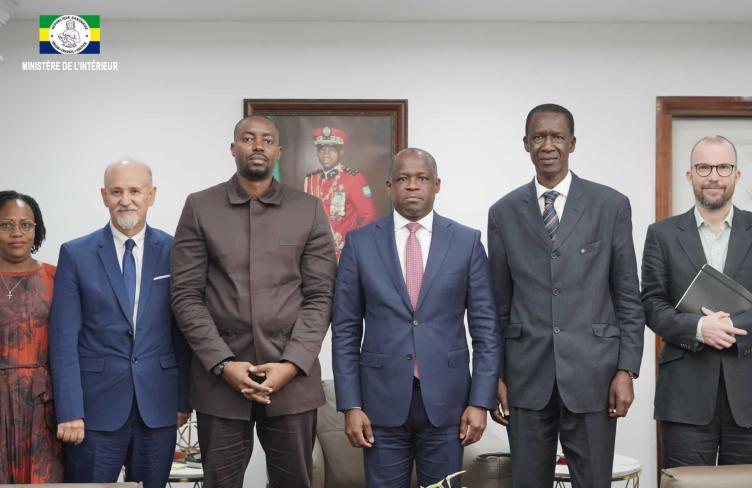
The UN Subcommittee for the Prevention of Torture (SPT) arrives in Brazil today – Monday 31 January 2022 – for high-level talks with representatives from the federal government, parliament and judiciary on the country’s system for preventing torture and ill-treatment.
This is the third time the SPT has visited Brazil - the most times any country has been visited by the UN’s torture prevention treaty body.
Following visits in 2011 and 2015, the SPT will use this visit to assess the policies in place to prevent torture and ill treatment in Brazil and to inquire into the weakened status of the National Preventive Mechanism (NPM).
In 2019, the President of Brazil issued Decree 9.831 which removed all funding for NPM personnel and dismissed all existing NPM members. While a Presidential Decree cannot formally extinguish a body established by law, in practice the Decree has dismantled the oversight body and rendered it unable to fulfil its mandate.
Since its establishment in 2015, Brazil’s NPM has monitored conditions of detention in more than 200 places of deprivation of liberty across 25 states of Brazil. All of its monitoring visits, findings and recommendations are documented in reports that are sent to the authorities and made public.
“The NPM has helped bring to light serious human rights violations in prisons, psychiatric hospitals and other places of detention,” said Sylvia Dias, APT Senior Legal Adviser and National Representative in Brazil.
In 2019, just a few months after the Presidential Decree was issued, the SPT published a legal opinion addressed to Brazilian authorities calling for the Decree to be revoked to ensure Brazil’s torture prevention system can function efficiently and independently.
“However, Brazil has not provided a satisfactory response to SPT´s concerns,” Ms Dias said.
“While a federal court has issued a temporary injunction suspending the effects of the Decree, this does not provide a permanent solution and does not guarantee the independent functioning of the NPM,” she added.
A bill of legislative decree is currently before the Congress which, if approved, will suspend the effects of the Decree. A legal claim is also under consideration by the Brazilian Supreme Court.
It’s a pressing matter. Without the financial and administrative support from the authorities, the MNPCT, which is supposed to visit and monitor prisons and other detention facilities regularly, will be barely operational.
Suzanne Jabbour, head of the delegation and Chairperson of the SPT
Ms Dias said the SPT had arrived in Brazil at a critical time to support efforts to overturn the Decree and strengthen the NPM and the national system for torture prevention.
“It is the first time the SPT will hold a mission that focuses on high-level dialogues with the three branches of government,” she said. “In meeting with the authorities, the SPT can remind them of Brazil’s commitments under the Optional Protocol to the Convention against Torture.”
“The SPT’s approach of holding direct and forthright conversations with the authorities is a welcome development that makes States more accountable for their actions, especially when they are not upholding their obligations under OPCAT,” Ms Dias added.
The SPT delegation will also meet with civil society organisations and family members’ associations. It is crucial that their voices are heard as recent government policy changes have curtailed their participation in civic spaces and public policy debates related to torture prevention.
Brazil currently has the third largest prison population in the world, with more than 800,000 persons deprived of liberty. Overcrowding permeates the entire prison system and the conditions of detention in Brazil have long been classified as cruel, inhuman and degrading,
The COVID-19 pandemic only worsened the conditions of detention. Lack of access to water, health care, fresh air and hygienic products made it impossible to implement any of the safety protocols recommended to prevent the spread of infection in closed environments.
In addition, persons deprived of liberty were subjected to long periods of isolation during the pandemic, with visits to prisons and other facilities suspended.
“In some states, family visits were suspended for more than seven months,” Ms Dias said. “Organisations that provide emotional, educational, religious or humanitarian support were also denied access for an extended period of time.”
“These restrictions highlight the essential role of independent oversight bodies with a legal mandate to challenge these restrictions and to ensure transparency in places of deprivation of liberty.
Brazil still lags in efforts to establish a genuine nation-wide system of torture prevention. There are only four state-level mechanisms and no national public programme to strengthen local mechanisms has been established, despite recommendations by the SPT in the report of its 2015 visit.
“We hope this current visit by the SPT will focus attention on the urgent need to support and strengthen Brazil’s NPM and the national system to prevent torture.”


